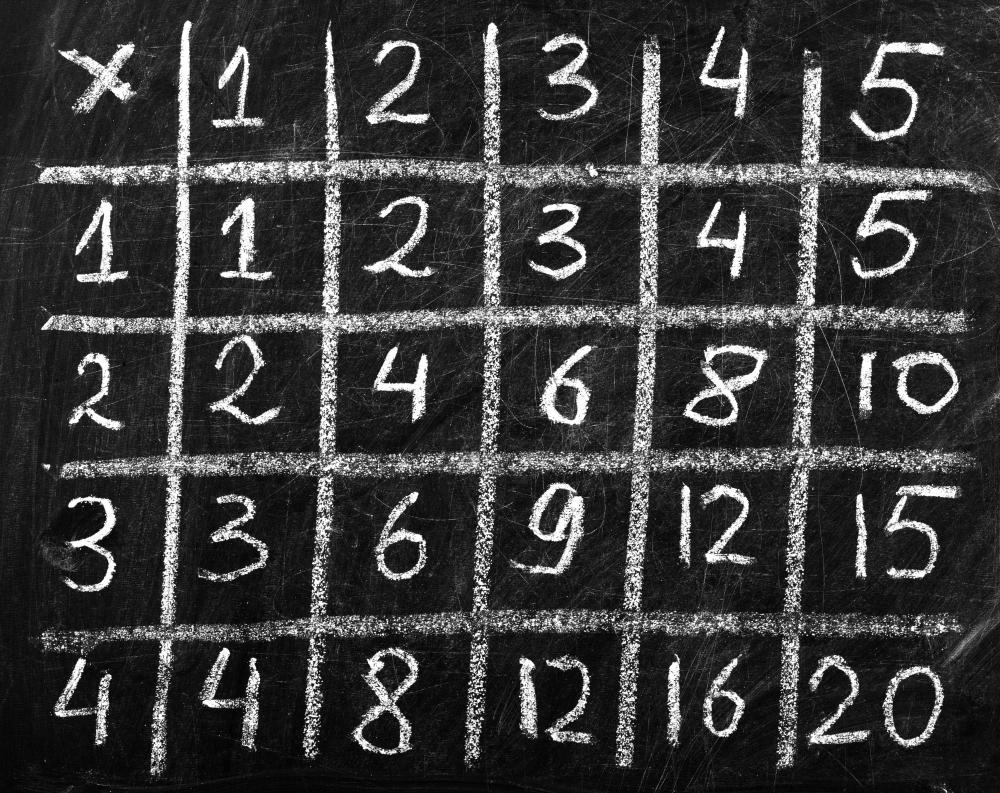At PracticalAdultInsights, we're committed to delivering accurate, trustworthy information. Our expert-authored content is rigorously fact-checked and sourced from credible authorities. Discover how we uphold the highest standards in providing you with reliable knowledge.
What is Rote Learning?
Rote learning, also known as learning by repetition, is a method of learning by memorizing information. This memorization is usually achieved through the repetition of activities such as reading or recitation, and the use of flashcards and other learning aids. The theory behind this learning technique is that students will commit facts to memory after repeated study, and will then be able to retrieve those facts whenever necessary.
In modern times, the practice of rote learning is heavily criticized by some educators and parents who claim that it encourages students to parrot facts without necessarily understanding them, and does not encourage students to question or analyze the information they have learned. However, some educators maintain that rote learning is necessary in certain situations. For example, very young children who are just beginning their education may have to learn certain facts by rote. These children need to acquire basic knowledge so they may continue to develop skills like critical thinking and creativity. In order to learn to read, young children must first memorize the alphabet. The development of higher math skills is prefaced by the memorization of the multiplication tables. Proponents of rote learning claim that analysis and deep understanding of the alphabet or the multiplication tables is unnecessary, and that it is more important that children memorize these facts quickly so they are able to begin learning more complex material.

Another educational environment in which rote learning can be an appropriate learning technique is in a special needs classroom. Students who are mentally handicapped or suffer from learning disabilities such as dyslexia or dysgraphia often require repetition in order to learn new things. In fact, some students with disabilities may only be able to learn by rote.

Sometimes, a student may be asked to learn a great deal of material over the course of a brief time period, perhaps when learning lines for a dramatic role. Alternatively, a student may need to quickly assimilate information that is unfamiliar, such as foreign language vocabulary words or the conjugation of foreign verbs. In these cases, rote learning is again useful because it promotes fast memorization.

The practice of studying for an exam is actually a type of rote learning. Students may use a number of learning aids to help them to remember information while studying. They make take notes or create outlines, drill each other with flashcards, or create acronyms or short poems to be used as mnemonic devices.
AS FEATURED ON:
AS FEATURED ON:















Discussion Comments
Cafe41 - I think teacher resources that are interactive and really relate to children are the most effective in making long term gains.
For example, when a teacher discusses a story it is important that she relate the main character of the story to a characteristic that the children in the classroom have so that the character will become more memorable and the comprehension of the story will be almost guaranteed.
Using sources like United Streaming offer a wide variety of programming from the Discovery Channel for educators and homeschool parents.
There are also lesson plans and suggestions in order to implement a lesson on a given topic.
Subway11 - I have heard of Kumon. Their centers are supposed to be really effective.
I have to say that traditionally teachers do look at role learning as the most basic form of learning.
Since the material is learned for the moment and it is quickly forgotten, it is really not considered real learning.
I think Kumon is different because the sheer repetition will cause children to remember how to work the problems.
I think that a teacher that can create fun math games and engage the children will be more effective than requiring students to memorize certain types of problems unless they use a spiral program.
For example, the Saxon Math program uses a spiral approach to education which requires that the children are introduced to a variety of different math problems briefly and then later on some of the same types of problems will be brought back with a higher degree of difficulty.
If the children struggled with a concept early on they will not have enough practice in order to master the material. For this type of program memorizing steps might help kids develop a strong grasp of the material.
I think that a certain degree of rote learning is important in developing math computation skills. For example, memorizing multiplication times tables helps a student process more abstract math later on.
I know that the concept of the Kumon Math and Reading Centers was based on this idea. The Kumon math program begins by having children as young as four years old begin to familiarize themselves with numbers.
As the child progresses through the levels they are introduced to all of the mathematical operations of addition, subtraction, multiplication, and division.
Through the process of continually repeating problems children develop a mastery of that particular mathematical operation that not only allow them the opportunity to handle more abstract math but they also develop confidence in their computation skills which is a large portion of what all math programs are all about.
Post your comments